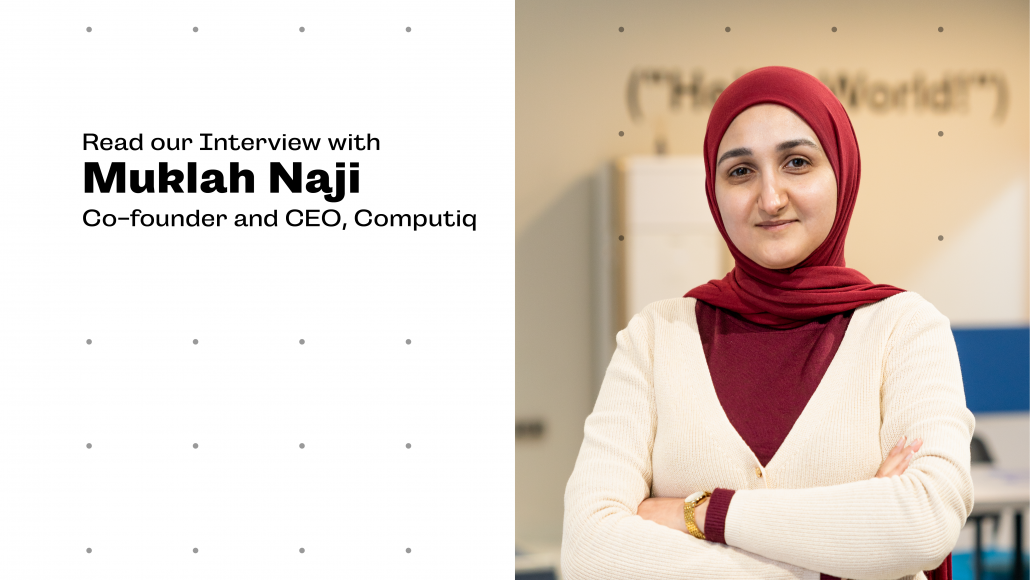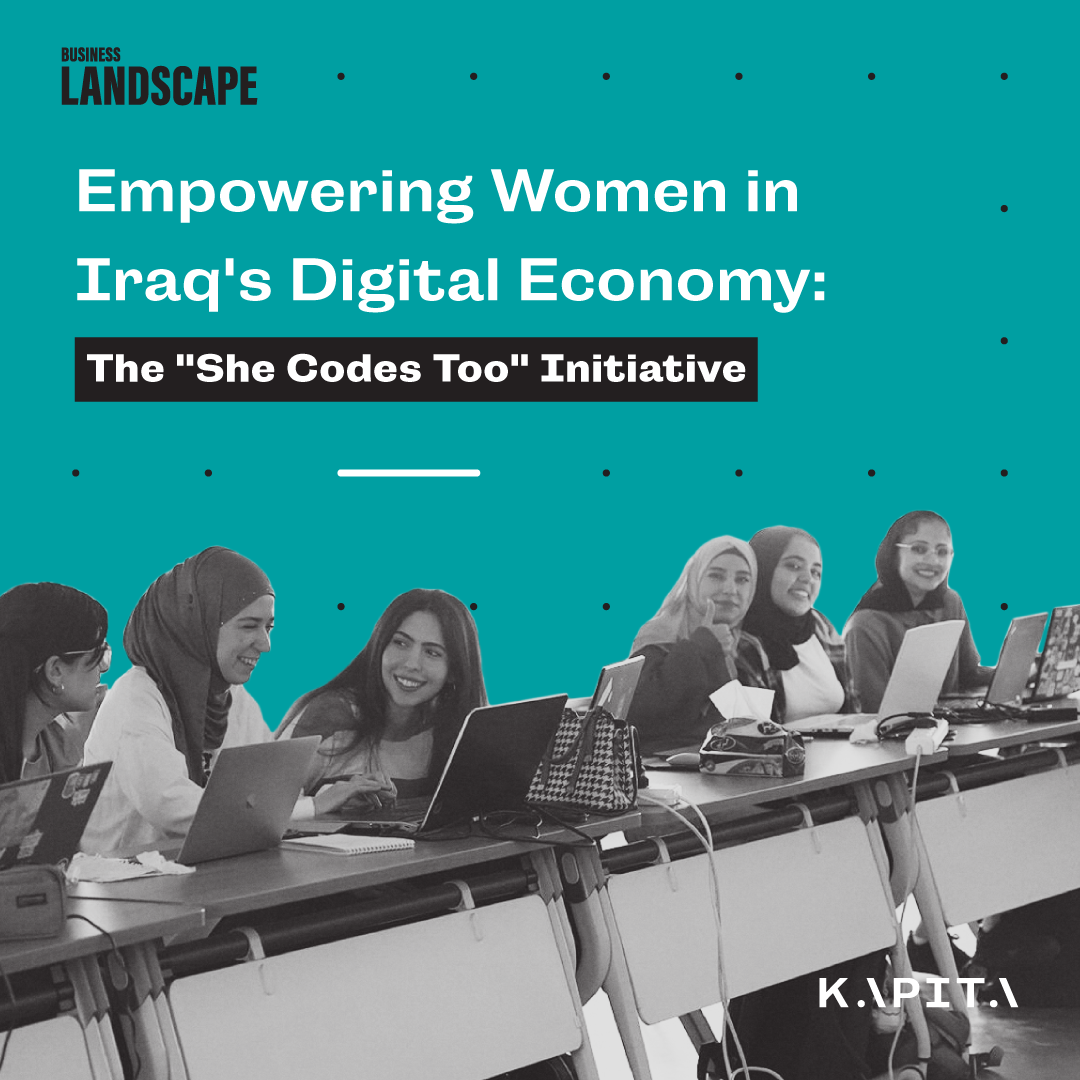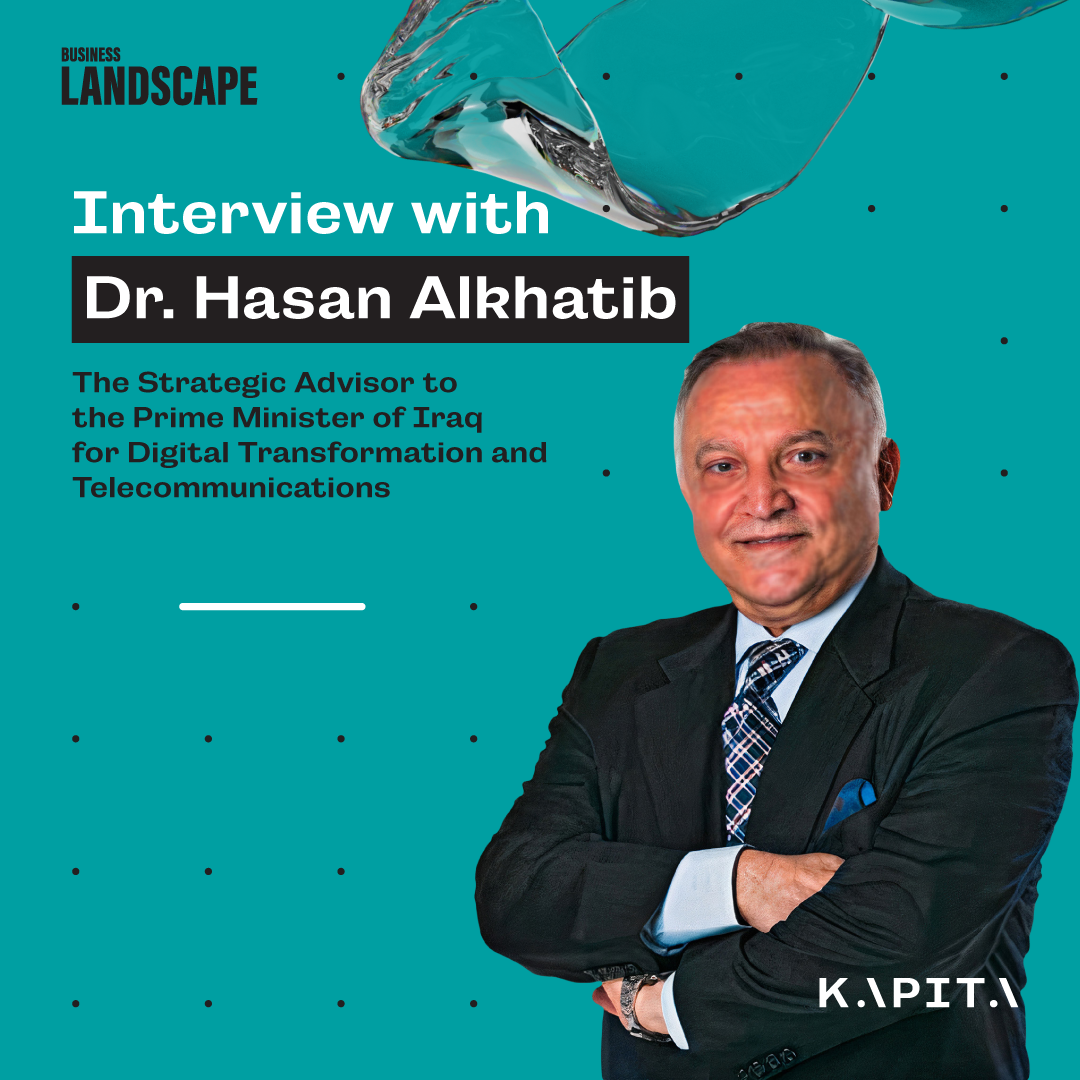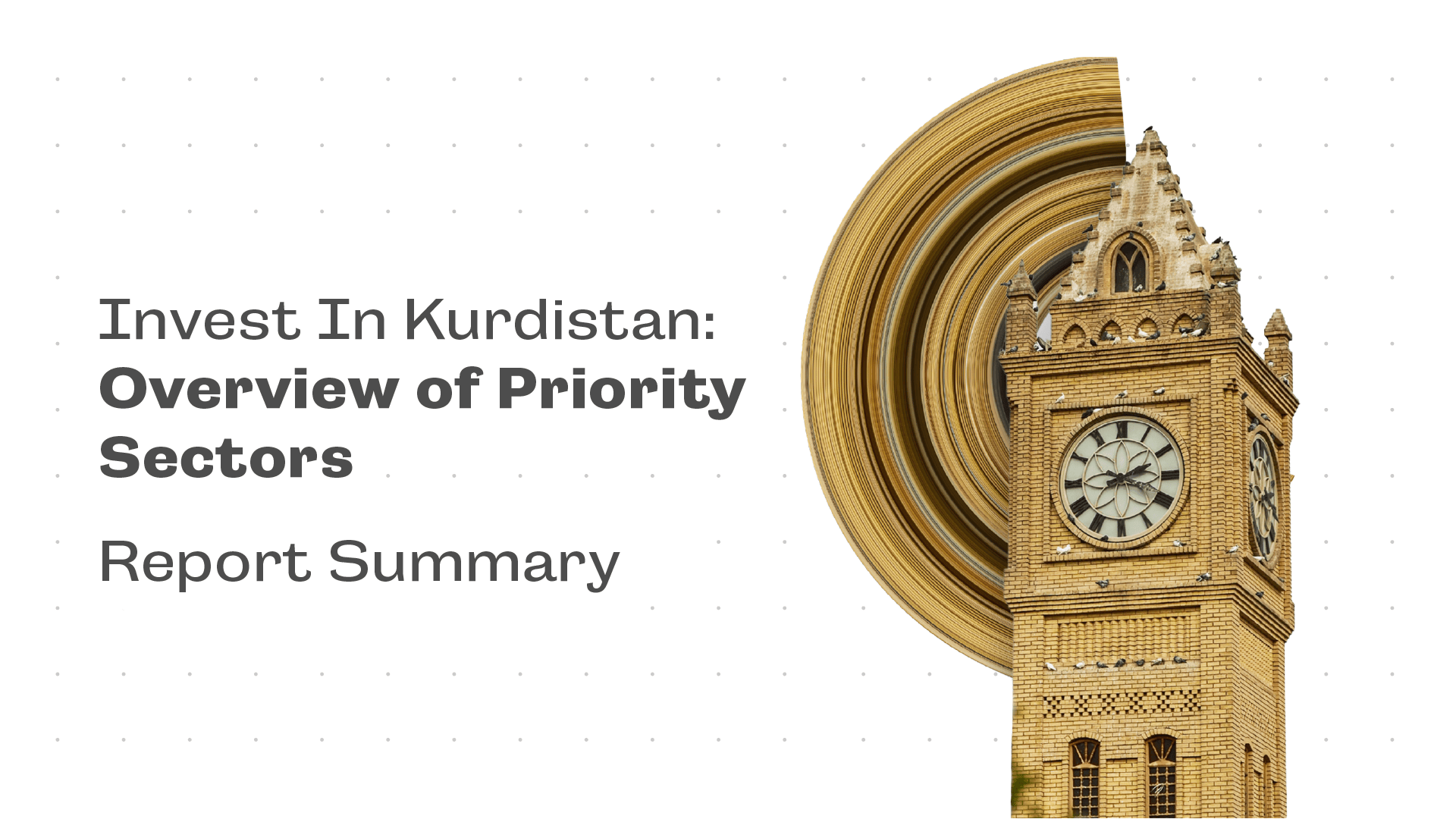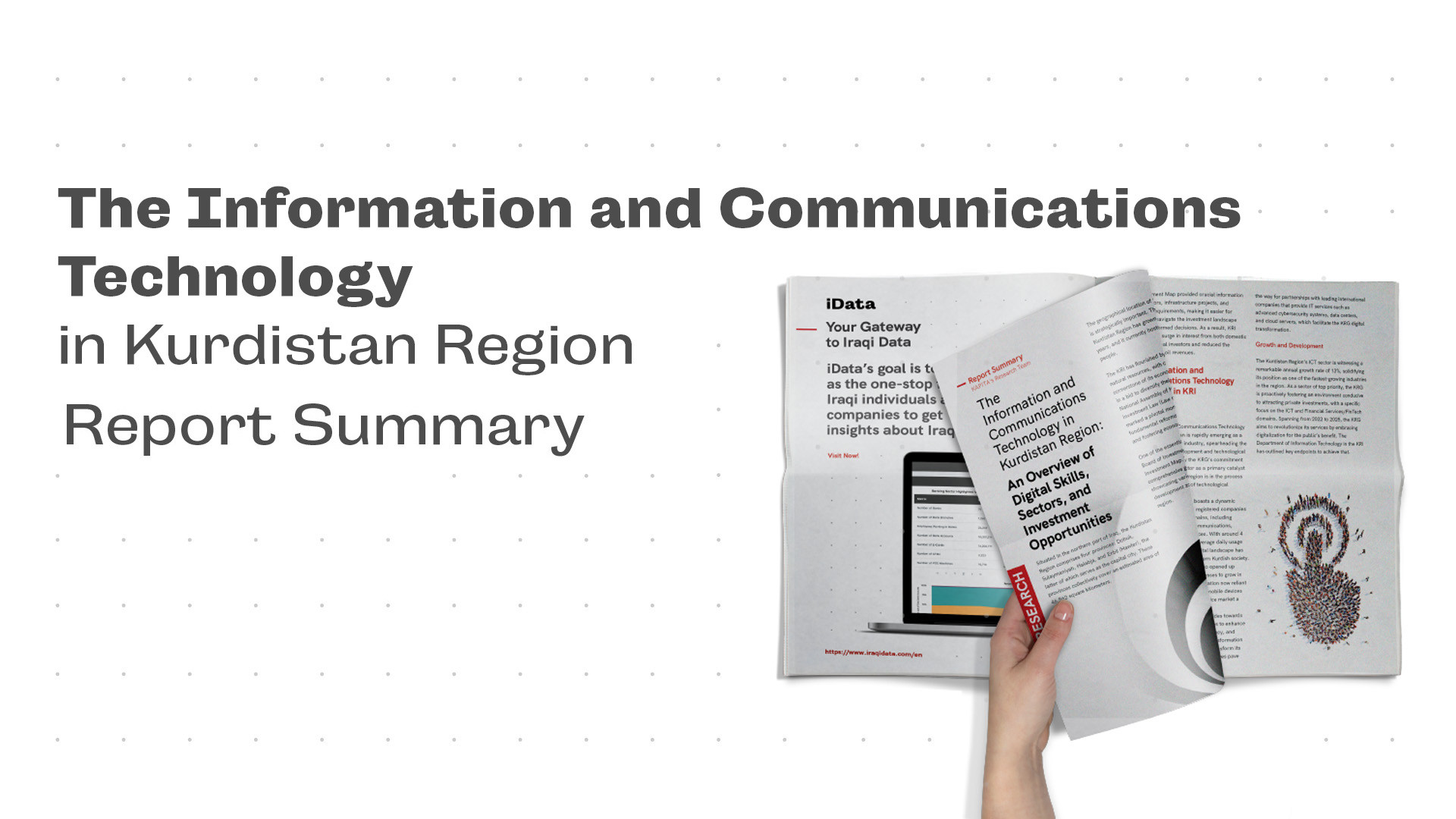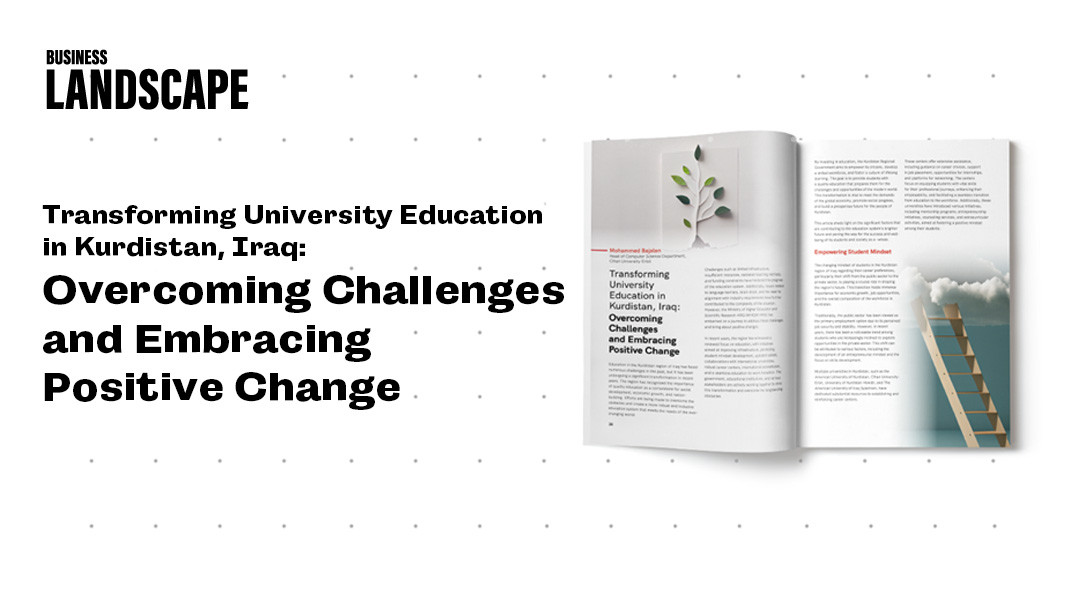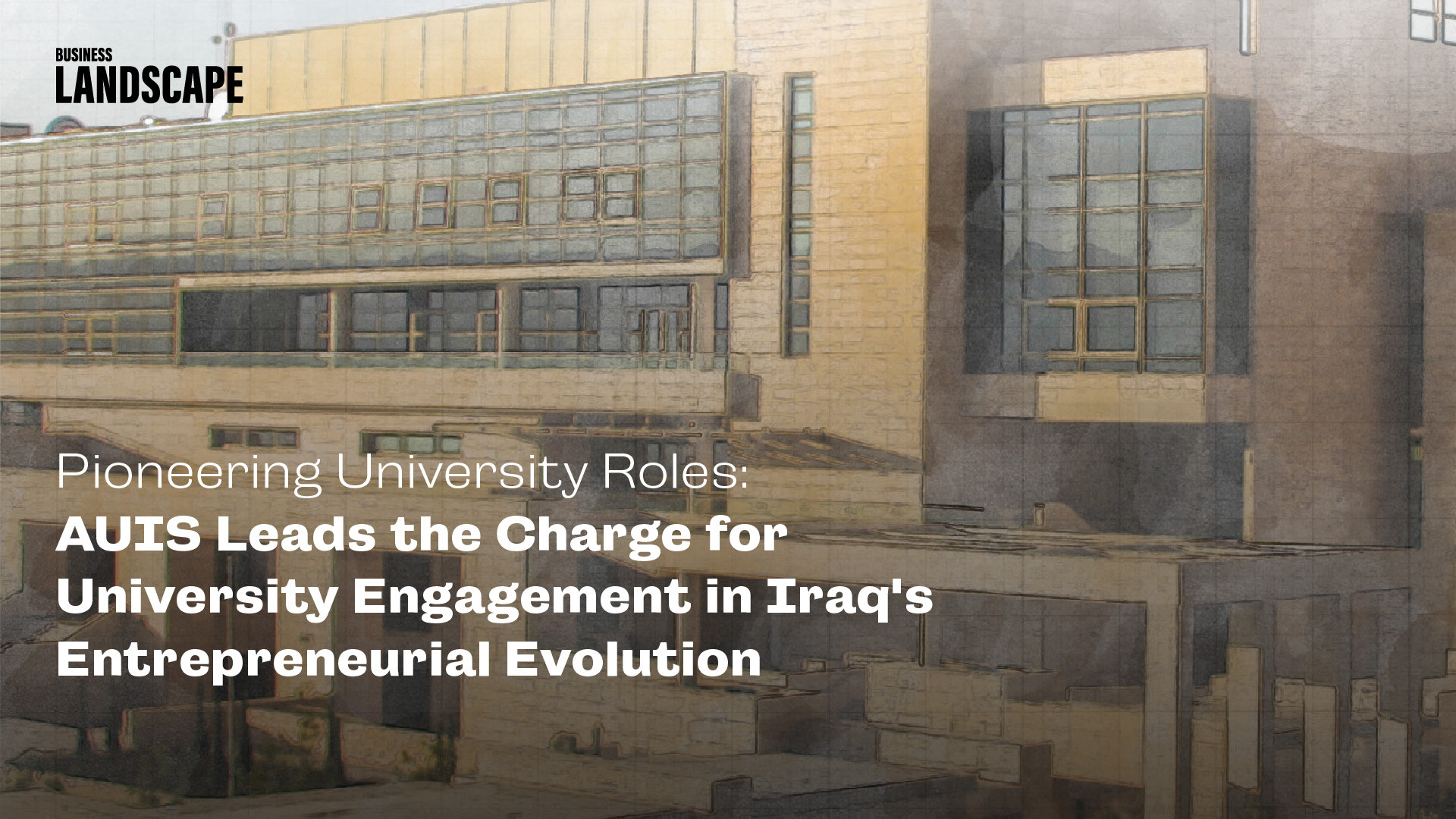Business LANDSCAPE Interview
Muklah Naji
Co-founder and CEO, Computiq and Hub 200
Muklah Naji is the Co-founder and CEO of Computiq, a leading software company that provides technical solutions and education, and Hub 200, a digital hub and a community space. Ms. Muklah is a software engineer with a bachelor's degree in information technology and engineering. Ms. Muklah started her journey with a passion for programming and has volunteered in multiple projects in the entrepreneurial scene until she founded her own company. In this interview, Ms. Muklah talks about navigating the entrepreneurial scene in the technology domain as a woman founder. She also discussed the importance of equipping the youth with digital skills and the essential role of building a community. Moreover, she talks about the current challenges that are facing digital transformation in Iraq and the steps to accelerate it.
For starters, we would like to learn about your background and journey.
My name is Muklah Hilal. I graduated from Al Nahrain University with a degree in information engineering. I work as a software engineer. I previously worked with multiple local and international private companies for 7 years. My journey started in my senior year of high school when I realized that I wanted to study information engineering rather than medicine, and I struggled a lot to convince my family to let me pursue a degree in information engineering. I had a passion for programming. My first experience in the entrepreneurial scene was ‘Startup Weekend,’ which opened many doors for me and allowed me to enter this community and meet many people with the same passions and interests. I was also a volunteer at the UNDP’s Innovation For Development Program. I organized multiple events and activities, including Hashcode, which is a coding contest affiliated with Google. I received a diploma in leadership and entrepreneurship from UNITAR in Japan. During this journey, I started developing a passion for entrepreneurship that later led to the creation of Computiq. Currently, I am the founder and CEO of Computiq and Hub 200.
What was the idea behind Computiq?
The idea behind Computiq started when one day at work, a colleague of mine introduced me to a course named Cs50 from Harvard University. We studied this course and dove deep into it, and then we realized that this course is offered everywhere around the world. We obtained permission to provide this course for students in Iraq and became the official educators of this course in 2019. The idea behind bringing this course to Iraq was that education is not equipping students with the necessary skills in programming after graduation to enter the job market. This leads many students to struggle with finding a job after graduation. This is coupled with the fact that most organizations struggle to find personnel with the required qualifications. The first course we provided was met with an overwhelming response despite not being free; we received around a thousand applicants. The course eventually grew into a whole company, from five employees to twenty. We slowly but steadily harnessed attention from individuals, universities, and even governmental institutions; we started receiving calls from companies asking for training sessions. This is under the umbrella of our education services. As for software solutions, our staff is comprised of programmers who work as freelancers with multiple companies. We later earned our reputation as a high-quality software solutions provider.
Could you tell us about the obstacles that you faced while establishing Computiq?
There are obstacles that anyone who establishes a company will be facing whether it is in the technology field or other fields. When I first founded Computiq, it was challenging to manage my time as an employee and a founder. I kept wondering whether I should quit my job to focus on my own company or keep trying to find the balance between the two. I was fortunate enough that my former manager was understanding, and the company that I used to work for allowed me the opportunity to build my businesses. When Computiq was registered officially as a company, and we established a physical headquarter, it was time for me to quit my other job and dedicate my time to Computiq. Another difficulty that the company faced was fundraising. It is very tricky to find an investor that believes in your idea and your business; this case is not limited to us but to all other startups in Iraq today. You must believe in your business to keep trying regardless of how many rejections come your way.
How was the process of raising investment for Computiq?
We received several investment opportunities that allowed us to scale up the business. The process was gradual. I am grateful for the first investment that we received, which made us enter the market as a private sector company after working as a non-profit organization. Today, I am also really grateful for every rejection we received. Those rejections allowed us to take more risks and helped us refine our business model. This helped me, as a woman founder who is working in a male-dominated field, to have more confidence and to believe in my idea.
How did you pave your path in the field of technology that is mostly men-dominated?
It is not easy for a woman to get a job in the technology field, let alone start one. The field is mostly occupied by men, leading the public to perceive men as better at tech than women. It is also harder for women-led startups to obtain investment, as investors usually assume that women are less reliable than men when it comes to business. In some cases, this assumption is valid, not because of women themselves but because many customs and traditions limit women in business and their interactions. For example, when I first founded Hub 200, one very challenging task was dealing with contractors, which is difficult for a woman in Iraq.
In addition, being a young woman entrepreneur has its own hassles; people often cannot perceive us seriously. And people are often surprised by the fact that Computiq is run by a person that they deem to be “too young.” This is a constant recurrence, even in the simplest of situations. A good example is when I go to the bank, and their employees ask me for authorization from the CEO and are surprised when I tell them that I am the CEO.
Since founding Computiq, how are you trying to encourage women to join the courses?
We often receive more applications from men than from women, and this is a common issue in this field, but we made sure that at least 40% of the total number of accepted applicants for our courses and programs are women. One of the ways we use to encourage women to apply is by providing some incentives like offering them special discounts, as we understand how difficult it is for a woman to enter this industry. For example, it is a challenge for women to convince their families to enter the tech domain or take courses, and it would be even harder to convince them to pay for the courses. Thus, we offer them discounts or even full scholarships. In addition, we try to facilitate transportation; we have partnered with ride-hailing companies to provide them with discounted trips, and we organize carpools for participants who live near each other. We try our best to help; we even sometimes talk to their families to assure them about the courses and address their concerns and earn their trust.
From Computiq to Hub 200. What is the concept behind Hub 200, and what are its current activities?
Hub 200 is a digital hub and, concurrently, a community space. We do not exclusively view ourselves as a technology project but as a community activities space. People who are interested in technology can join us, and so are others. Our goal is to prepare people for business and let them participate in developing Iraq's digital economy. Digitalization is rapidly taking over worldwide, and Iraq needs to catch up. Among the things we struggle with in the country is education, which is the core of our services at Computiq and Hub 200. We believe education is the first investment anyone can make in themselves for the future.
Our activities include workshops in different digital specialties. We started with programming; now, we are teaching IT, digital marketing, and networking. We even moved to offer courses in soft skills like communication skills and English. Furthermore, Hub 200 provides a space for people with similar interests in different topics to meet and exchange ideas and thoughts. When I was a student, there were no places for youth to gather, only restaurants and cafes. My college friends and I used to look for any opportunities or events that took place just to gather. Such a community needs to exist; for people to join and surround themselves with others who are creative and have similar interests is important for personal growth and establishing connections.
What skills do you think students need to develop in university? And what steps must be taken to reduce the gap between fresh graduates and the job market?
Our educational system mainly focuses on the academic aspect of education without paying attention to the social and practical aspects, which are essential to prepare students for their lives after graduation.
There are still students who need to learn basic digital skills, as many cannot yet create an account on websites, create an email address, operate a laptop, or use Microsoft Office. Soft skills are also significant, such as communication skills and teamwork. Moreover, I believe that language skills are of extreme importance, especially English. People do not realize that the language barrier can significantly impact the chances of finding a job. Another aspect is the mindset that is reliant on employment in the public sector. Iraq is a huge market that is still untapped. Students need to develop their entrepreneurial skills and navigate the ecosystem to find job opportunities in the private sector.
Computiq and Hub 200 are trying to reduce this gap by collaborating with universities and governmental institutions. The existing summer training and internship models provide little to no skills for students. That is why once they graduate, they are shocked by the reality of how the market actually works. For us, those collaborations aim to provide students with beneficial training to equip them with the necessary skills to enter the job market.
What are the current challenges that are facing digital transformation in Iraq? What steps do we need to take to accelerate this transformation?
Digital transformation is a wide realm that has not yet been fully grasped in Iraq. One of the most important aspects of digital transformation is the infrastructure that we lack in Iraq. We do not have a reliable internet connection, stable electricity, or advanced technologies. Another aspect is education; the outdated curricula and pedagogy of our education system and the lack of training opportunities provided by universities are hindering the progress of digital transformation. Moreover, the country’s reluctance toward technology is an obstacle we need to overcome. For example, our economy is still cash-based, despite the advantages that cards can provide. There are other factors, such as instability and the absence of proper regulations, that prevent international investors from entering the Iraqi market; those investors could contribute significantly to the acceleration of digital transformation.
Digital transformation also needs the development of various technological fields such as AI, data science, blockchain, and IoT. Moreover, we need to encourage startups and individuals to invest in those fields. The government can achieve this through tax exemption, facilitation of corporate registrations, provision of loans, and the establishment of a supportive environment for those startups to work in those fields. This whole process needs collaborative efforts from the government, educational institutions, and the private sector to produce a technological ecosystem that can push the digital economy forward.
Where do you see Computiq and Hub 200 in the future?
We see Computiq and Hub 200 as contributors to the development of the skills of the working force in the country, especially the youth, and as participants in reducing the gap between human resources and the private sector. We also aim to promote digital transformation by building the digital skills of the youth. In addition, we try to reduce gender bias in the technology field to encourage the inclusion of women in this domain. Furthermore, we believe in the role of building a community and creating a safe open space for the youth to come together to share ideas and join a variety of activities that support their personal growth.
